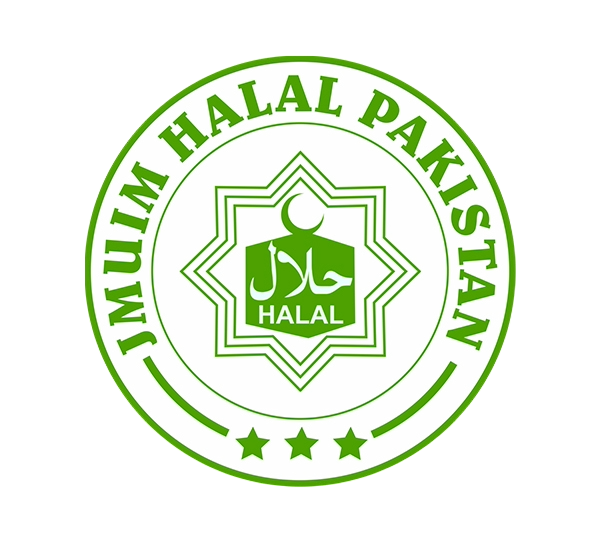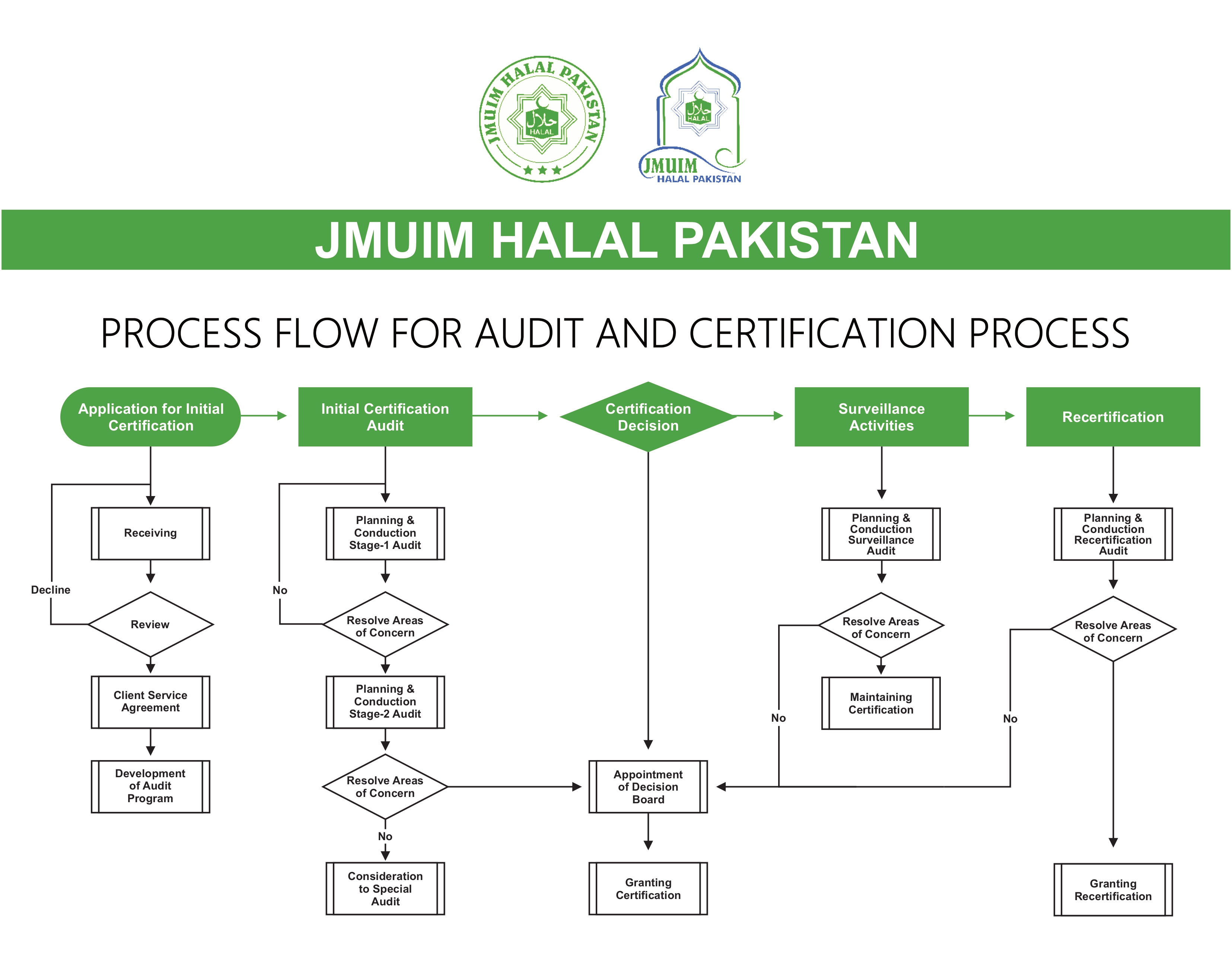Services
How Halal Certification Works
The halal certification process of JMUIM consist of following steps
THE HALAL CERTIFICATION PROCESS
The process of halal certification may vary slightly depending on the specific requirements of the organization seeking Halal certification. However, here are the general steps involved in the JMUIM halal Pakistan certification process:
Application:
The organization interested in obtaining halal certification submits an application to the JMUIM Halal Pakistan. The application typically includes information about the company, its products, ingredients, manufacturing processes, and any existing certifications or quality management systems in place.
Stage 1
Documentation Review:
JMUIM Halal Pakistan reviews the submitted documents, including ingredient lists, production processes, and quality control procedures, to ensure compliance with halal requirements. We may also assess the company’s compliance with any applicable regulatory standards.
Ingredient Verification:
JMUIM Halal Pakistan examines the sourcing and origin of ingredients used in the production process. We verify that the ingredients are halal and comply with the necessary standards. This may involve checking certifications of suppliers or conducting further investigations as needed.
Stage 2
On-Site Inspection:
JMUIM Halal Pakistan conducts an on-site inspection of the organization’s facilities, including production areas, storage areas, and any other relevant areas. The purpose of the inspection is to verify that the processes and practices align with halal requirements.
Audit and Compliance Assessment:
The certification body performs an audit of the organization’s operations, which includes reviewing documentation, records, and procedures related to halal compliance. We assess whether the company’s practices adhere to the required standards and identify any areas that need improvement.
Corrective Actions:
If any non-compliance issues are identified during the audit or inspection, the certification body provides feedback to the organization and outlines the necessary corrective actions. The organization is given a specific timeframe to address these issues and demonstrate compliance.
Certification Decision/Issuance:
Based on the documentation review, on-site inspection, and audit findings, JMUIM makes a decision regarding halal certification. If the organization meets all the necessary requirements, the certification body issues a halal certificate or a certificate of compliance. The certificate typically includes information such as the scope of certification, the validity period, and any specific conditions or limitations.
Surveillance Audits:
After obtaining certification, the JMUIM may conduct periodic surveillance visits or audits to ensure that the certified organization continues to meet the halal requirements. This monitoring process helps maintain the integrity of the certification over time.

